The US Drug Enforcement Agency hires a lot of translators. They’ve announced that they’re looking to hire translators for African-American Vernacular English (AAVE), or as it’s sometimes known, ‘Ebonics’.
I remember the Oakland controversy in 1996, and it’s disappointing the discussion hasn’t advanced since then. I know that people aren’t born linguists, and I’m used to people having strong feelings about standard v. non-standard dialects, but I wasn’t expecting the depth of ignorance and vitriol that I’ve seen on the Net in the wake of this announcement.
Many comments on this issue appear in a variety of English I call ‘Ivorics’. For your convenience, I’ve given a translation, with some relevant facts.
From tooslow4me67
its like blacks are’nt american.they now have a half assed mumble language the dumb pres wants to glorify.learn correct english and excel.don’t take credit for something that makes a joke of you.
Translation: AAVE is just lazy mumbling.
In fact, AAVE shows regular patterns of word-final consonant dropping, like many other varieties of English. A lot of people know about ‘aks’ instead of ‘ask’ — one feature of AAVE. Turns out that speakers of standard English used to say ‘aks’ until about the 1500s. It’s a normal process.
From an African American:
My point is . . . just about any Black person who has been around friends, family or whatever, can “translate” ebonics. It is not a separate language, it is simply people being lazy in speaking and not completing their words. It’s not like it’s Swahili or Ibo or some real dialect.
Translation: I can understand them perfectly well when they use their lazy ghetto slang.
In fact, AAVE, like any sufficiently divergent variety, may not be comprehensible to a speaker of standard English. And generating a sentence is another matter altogether. If you try to fake it, you will sound like a real jive turkey.
A commenter at the Washington Post
Have we all lost our minds? The 1996 introduction of “Ebonics” by some Oakland teachers was an attempt to get additional funding. The teachers believed that African-American students were not given their fair share of the various additional school board special funding. End of story
Translation: They’re after your money.
In fact, the controversy in Oakland was, in part, the result of an attempt to procure funding to teach SE to AAVE speakers.
From the Washington Informer
But what’s sad and ironic here is that while Ebonics continues to be vilified and ridiculed, the drug trade and criminality has forced the DEA to see it as a legitimate language. And I can’t help but think that if more school systems had done that [offered academic help to AAVE speakers] years ago, many of the suspected black drug dealers that the DEA now needs to be able to understand to put in prison might not have chosen that route.
Translation: AAVE is an on-ramp to crime.
While this author has good intentions, and I agree with the education angle, I think we underestimate the extent to which speakers of AAVE are already familiar with standard English. It’s the speakers of SE that are unfamiliar with AAVE. Speakers of AAVE are the bilingual ones, not SE speakers.
From some idiot.
In one corner, we have the ebonics apologist, Stanford linguistics professor H. Samy Alim, who said, “It seems ironic that schools that are serving and educating black children have not recognized the legitimacy of this language, yet the authorities and police are recognizing that this is a language that they don’t understand. It really tells us a lot about where we are socially in terms of recognizing African-American speech.”
Umm … no.
First of all, you, sir, are a proponent of ebonics, yet that quote shows your preferred version of English is pretty much indistinguishable from Winston Churchill’s. In fact, you can communicate complex thoughts to other people BECAUSE THE SCHOOLS YOU ATTENDED DID NOT TEACH YOU TO SPEAK JIVE.
If they had, you’d be screwed. In fact, you might have to be a drug dealer, since no one doing the hiring in the non-criminal world would be able to understand you.
What ignorant twaddle. He thinks AAVE isn’t capable of expressing complex thoughts, which it is. He also doesn’t seem to grasp the idea that different codes are appropriate for different situations. And he doesn’t question the wisdom of lecturing a linguist on linguistics. What a maroon.
The fact is that language changes. Eventually in any language, there will arise some variety that differs from the ‘standard’ variety. People will then consider that variety to be ‘inferior’, ‘lazy’, ‘corrupt’, or a lot of other bad names, depending on how they feel about the people who speak it. But what people don’t usually realise is that the non-standard variety isn’t just cobbled together. It has internally consistent rules of its own. The speakers aren’t trying to speak standard English and failing.
Criticising someone on the basis of their race is seen as less and less acceptable these days. But as we can see, it’s still acceptable to throw up the same old ugly caricatures on the basis of language use.
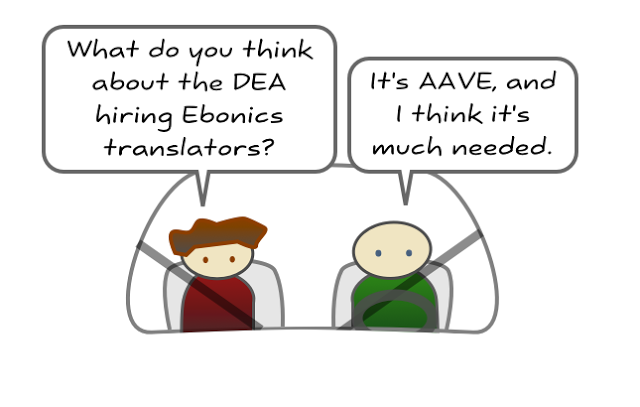

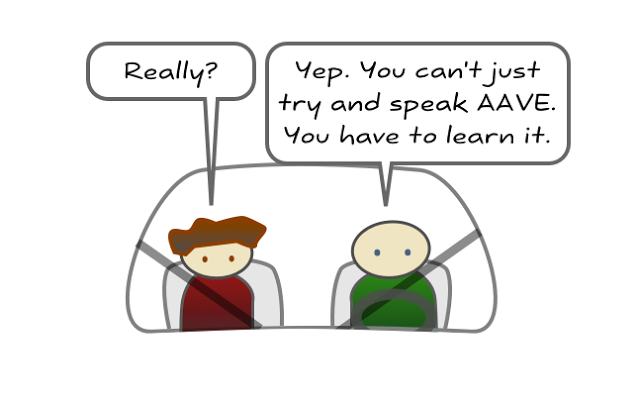
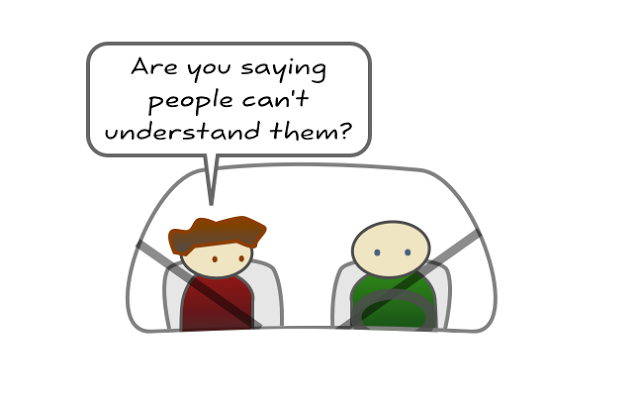
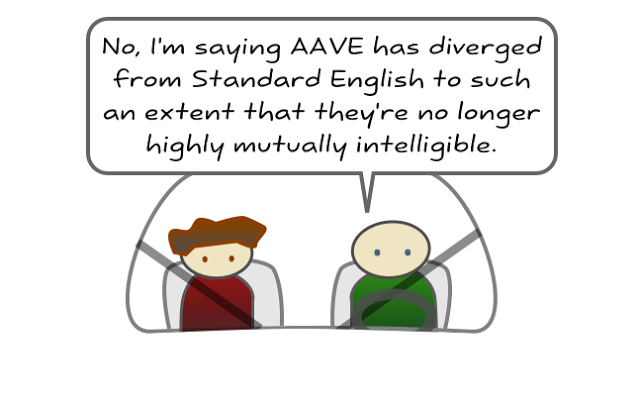
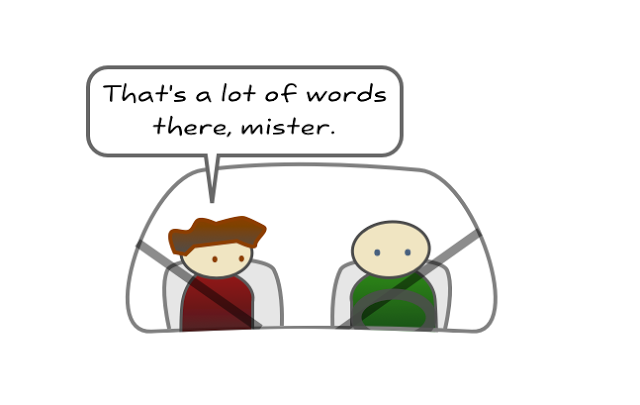
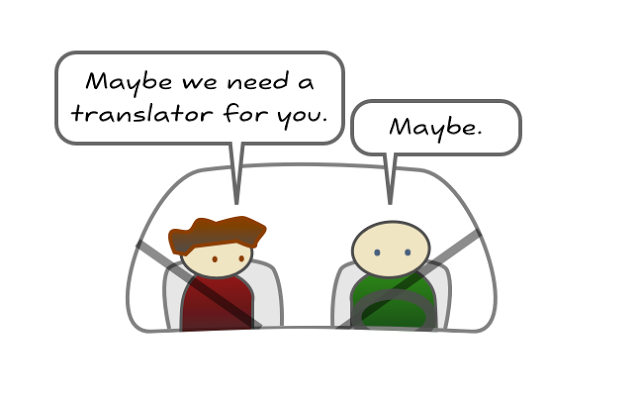

Recent Comments